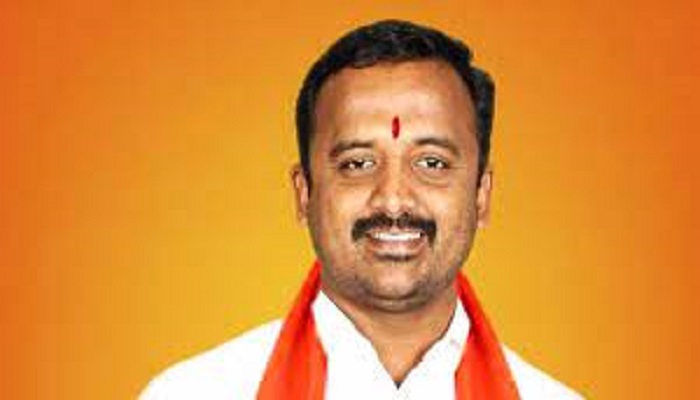A. Harikumar
The alleged suicide of a Karnataka civil contractor Santosh Patil after writing a note that the state rural development minister of K.S Eshwarappa is responsible for his death has kicked up a storm in the state’s politics. The opposition has demanded the dismissal of the minister for abetting the suicide. The police have named Mr. Eshwarappa in the FIR filed in connection with the suicide case, after a family member of the deceased contractor filed a complaint.
Media reports that quote the family of Mr. Patil said, the deceased was exasperated at the inordinate delay in payments due to him for the works completed. Mr. Eshwarappa demanded a staggering bribe to the tune of 40 percent of the Rs four crore, due to the deceased for the works he had executed for the rural development department, said the brother of the dead contractor quoting the suicide note of the deceased.
Meanwhile, India’s national media have reported that the national leadership of the BJP, India’s ruling party, is likely to intervene, and Mr. Eshwarappa will be eased out to control the damage in the Southern Bastion of the party. However, it is doubtful if the action will have any meaningful impact on the rampant corruption in the government constructions across the country. The nexus between corrupt politicians and officials have devastated many contractors in the past too. One of the suicides that shocked the country was that of Lee See Been, chief project manager of PATI-Bel, a joint Indo-Malaysian venture in 2006. He committed suicide after the Kerala Government failed to clear dues for the work his company completed in the state.
After suicides, the usual strategy of governments is to malign the reputation of contractors saying they had botched up works and demanded clearance of bills against norms. Kerala government had done that in Lee’s case in the past. Now, Mr. Eshwarappa has also raised the same charges.
Rampant Corruption
Meanwhile, the suicide of Mr. Patil is likely to open a can of worms in Karnataka politics. The allegation in the suicide note is not a one-off incident. It is a pointer to the rampant corruption that exists in the state’s construction sector. A couple of months ago, Karnataka Contractors’ Association, an organisation with 100,000 members had spoken out against corruption in the construction sector in the state. The state was shocked when they said several ministers in the state government were demanding up to 40 percent of the bills submitted by contractors to clear them. They even wrote letters to Prime Minister Narendra Modi and President of India Ram Nath Kovind. The issue rocked Karnataka assembly and the opposition termed the government 40& Government The state contractors association has warned to call off all construction works of the state government from May 25.
The contractors say they cannot survive paying 40 percent bribe. Leaders of all political parties like the Congress and the JD (U) also demand bribe, but that is 10-15 percent. 40 percent is day time robbery and will wipe out the industry, said reports quoting contractors.
Construction crisis and corruption in other states
Karnataka is not an exception. Other Indian states are also on a par with Karnataka in corruption. Moreover, delay in payments due to contractors is the norm in many states. On April 5, a meeting of confederation of contractors in Kerala held a meeting at Thiruvananthapuram and said many contractors are on the verge of suicide because of the delay in payments and under par estimates. Kerala Government Contractors’ Association state president Varghese Kannampally said despite huge spike in prices of construction materials, the state government was preparing estimates based on the cost of construction materials that existed in 2018.
In 2017, A. Augustine, a contractor who had to get roughly Rs one crore from different government departments had committed suicide before a village office in Kozhikode after he was frustrated at the delay and bureaucratic red-tape. Though it kicked up a row at that time, it died out and the perfunctory attitude of the government machinery continued. In 2020, March, Rajesh Tawade a 52-year-old government contractor committed suicide in Mumbai after he failed to get pending dues from the government. Such mishaps occur frequently, but rarely get media attention.
Recently Gujarat chief minister Bhupendrabhai Patel at a public function recounted that he began life as a contractor and quit the profession after his first contract ended in a heavy loss. He asked the contractors to quote high and maintain quality to tide over unforeseen crisis in profession.
It is widely pointed out by contractors that flaws in rules and regulations and procedural bottle necks that exist in Indian states are the major factors that leaves enough room for corruption. While the union government is making some efforts, like e-bills, to bring in transparency in the system many states are not moving in that direction. The likes of Eshwarappa may be flayed when a calamity occurs, but if the system remains the same, crisis will return.

